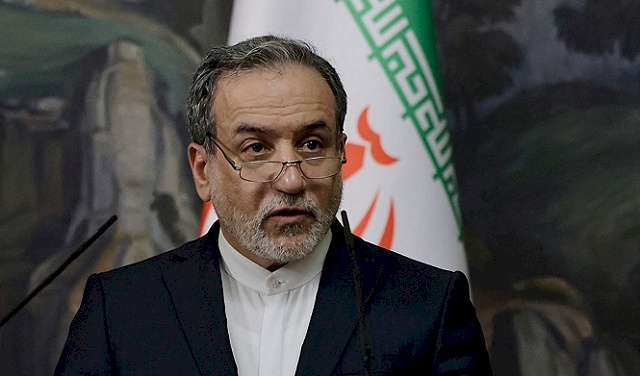
Iraqi: Attempts to Disarm Hezbollah Are Not New... We Support Lebanon
SadaNews - Iranian Foreign Minister Abbas Araghchi said on Wednesday evening in an interview with Iranian television that "attempts to disarm Hezbollah are not something new, and the position expressed by the party's Secretary-General (Naim Qassem) demonstrated the strength and steadfastness of this position". He emphasized that Hezbollah today is "at the peak of its power, and the blows or damages inflicted on Hezbollah have been compensated". He added, "We support Lebanon and do not interfere in its decisions," referring to the support of the Amal Movement for the party's position.
Negotiations with the United States
In response to a question about the existence of arrangements for a new round of indirect negotiations with the United States in the near future, Araghchi said: "No final date has been set yet; there have been talks, and they are still ongoing. We have received messages from the American side, and whether negotiations will take place in the near or distant future depends entirely on what our interests require".
He added that negotiations are part of the confrontation with the rest of the world, particularly with the United States. He continued, "We fight when the country's interest demands it and negotiate when national interest requires it". Araghchi confirmed that "if the Americans think their attack on our facilities will change our position or push us to retreat, they are mistaken".
In response to a question about whether the launch of any new negotiations with Washington is conditioned on a U.S. commitment not to carry out military action, and whether there is hope for such a commitment, he said: "We can never hope for that; no one can provide such a commitment. What matters is that they succeed in earning our trust".
He emphasized that his country has not yet been convinced that if the Americans initiate new negotiations, it would be with a serious intention to achieve results based on a balanced exchange of interests. Speaking about cooperation with the International Atomic Energy Agency, he clarified that the situation changed after the bombing of Iran's nuclear facilities, and there is a need to formulate a new framework for cooperation with the agency.
Relations with Egypt
Regarding relations with Egypt, the Iranian Foreign Minister stated that relations witnessed "a leap that exceeded expectations" during the past year, revealing that he met with Egyptian President Abdel Fattah el-Sisi four times this year. He added, "I have not met with any other head of state this many times, even with countries with which we have friendly relations; for example, I met President Putin only twice, as well as the leaders of other neighboring countries". He also mentioned that he met with Egyptian Foreign Minister Badr Abdel Aty more than ten times last year. He commented on phone communications, saying, "The number has exceeded the limit, and the majority of these communications are about bilateral relations, although the Gaza and Palestine file is present among them".
New Phone Call
In this context, the Iranian Foreign Ministry announced in a statement that Egyptian Foreign Minister Badr Abdel Aty made a phone call to Abbas Araghchi, during which the two sides discussed paths for bilateral cooperation and regional and international developments. The statement indicated that the two parties discussed in this call bilateral relations, as well as the escalation of the humanitarian crisis in the Gaza Strip due to the continuation of the food and medical blockade, the ongoing genocide crimes, and the urgent need to provide assistance to the people of Gaza and stop the crimes of the Israeli occupation.
During the call, the Iranian nuclear file was also addressed, in light of the recent military attack launched by the Zionist regime and the United States on Iran. At the same time, Egyptian media reported that the Egyptian Foreign Minister made a phone call to the Director General of the International Atomic Energy Agency, Rafael Grossi, which raised speculations about Cairo potentially playing a mediating role between the two parties.

Tehran: Classifying the "Revolutionary Guard" as a Terrorist Organization is a "Strategic...

US Sends Additional Warship to the Middle East Amid Tensions with Iran

Europe Punishes 17 Iranian Officials Including the Interior Minister and the Attorney Gene...

Turkey Intensifies Mediation Efforts Between Iran and the US

Casualties in Russian Attack on Ukraine as America Acknowledges Negotiation Difficulties

The European Union Moves Towards Classifying the Iranian Revolutionary Guard as a 'Terrori...

Army and Police in Venezuela Pledge Loyalty to Acting President Rodríguez

